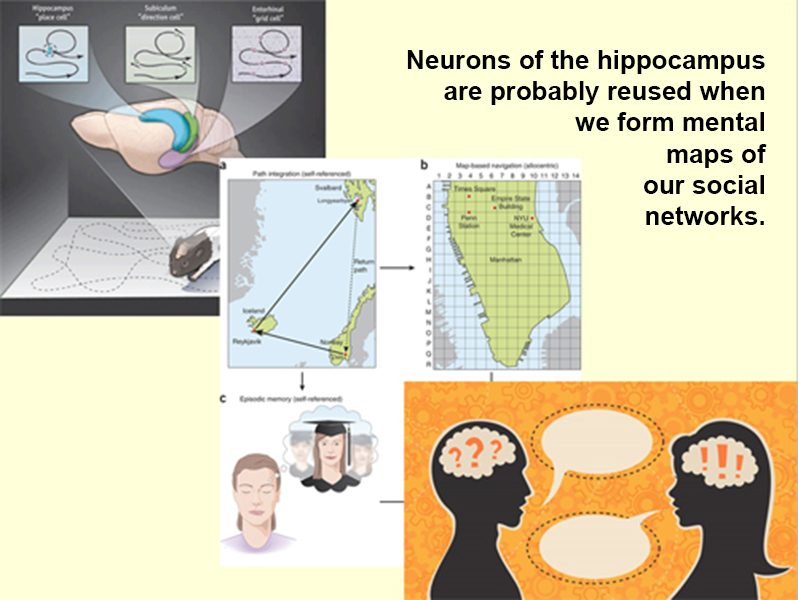Tuesday, 29 October 2024
Neuronal recycling

The concept of neuronal recycling is based on the principle that the process of evolution never starts from zero, but instead always builds on whatever has come before. In this way, the brain can develop complex new functions far more efficiently than if it had had to create them from scratch. It would be surprising if the brain didn’t take advantage of this principle, and in fact, many neuroscience researchers have developed theories and models that are based on it. Thus, brain circuits that evolved earlier—sensorimotor circuits, for example—are thought to contribute to the development of new brain functions, such as language, while still preserving their original functions as well.
Another example is that various types of neurons of the hippocampus—a brain structure associated with navigating through space—are probably reused when we form mental maps of our social networks (who among all the people I know do I feel close to? who is above or below me in the social hierarchy?). And this complex social mapping seems to be facilitated by the same areas of the hippocampus that we use to prepare mental timelines of our lives, or mental maps of our conceptual knowledge, or old-fashioned geographical maps to orient ourselves in space. And the same big advantage for the other kinds of maps applies here too: the ability to simulate possible choices and to make predictions in the comfort of our own mental space and, ultimately, to navigate our social space more easily by recycling an old mechanism for navigating through physical space.
Evolution and the Brain | Comments Closed







